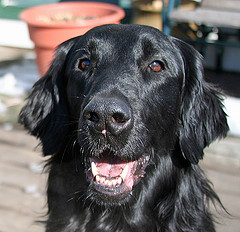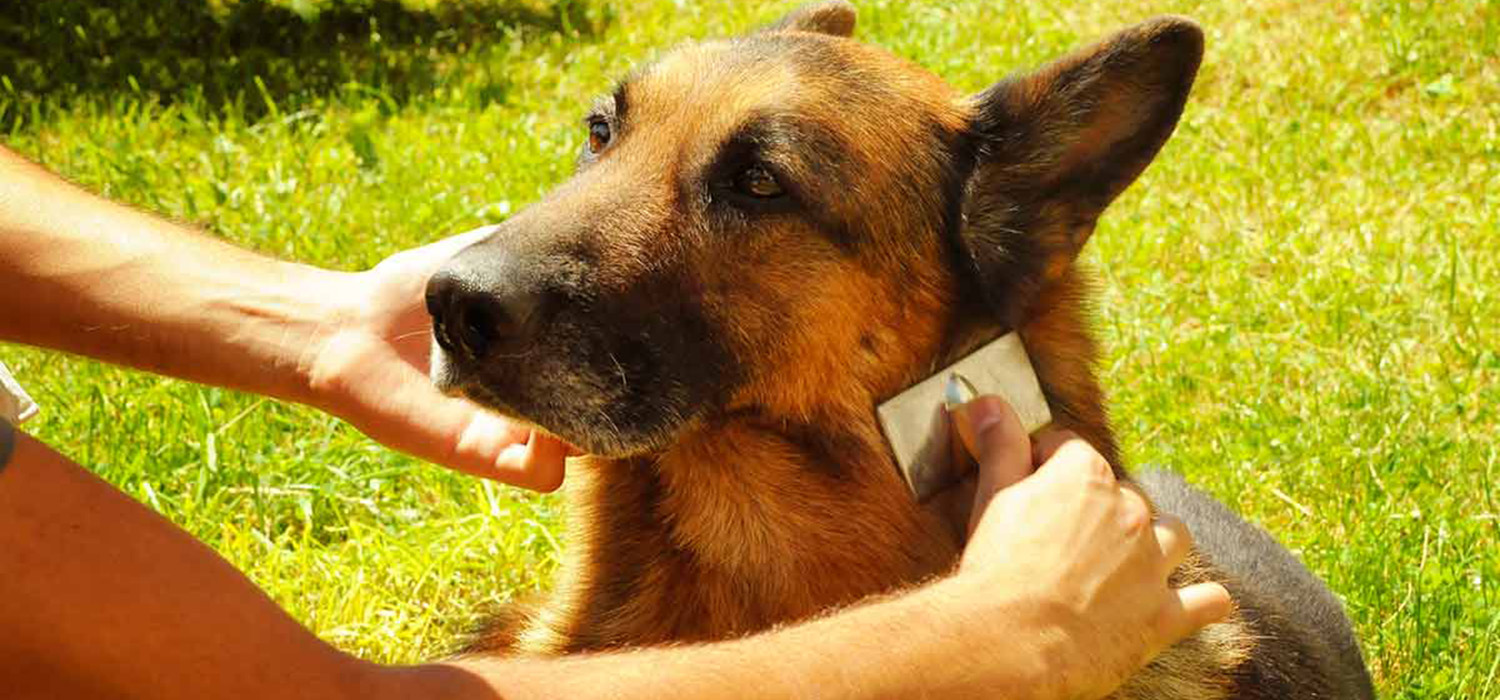 Have you noticed whether your dog has healthy skin and coat? The look and feel of your dog’s coat will tell a story about what is going on for his whole state of being – internally and externally.
Have you noticed whether your dog has healthy skin and coat? The look and feel of your dog’s coat will tell a story about what is going on for his whole state of being – internally and externally.A dog in a very healthy condition will have clear skin with no rashes, irritations or signs of dryness. The coat will be soft to touch and have a glowing sheen to it and there will be no odour.
If your dog has dull coat and skin problems or a smell is apparent this could indicate an underlying internal health problem also.
Feeding and Nutrition
Feeding your dog a well balanced diet plays a very important role in the condition of the skin and coat. A correct balance of minerals and vitamins as well as essential fatty acids are necessary for maintaining the health of the dog and this will reflect in the skin and coat condition.
If your dog has a dull coat try supplements of flaxseed or fish oil. Omega fatty acids (3, 6 and 9) are essential for health and vitality and supplements of this can be effective in skin and coat improvement. An egg a couple of times a week won’t hurt either.
Allergies
Allergies are more indicative of skin problems rather than coat problems and can be caused through many different factors, ie food, grasses, insects or chemicals and shampoos. If your dog shows signs of red, itchy skin you can only determine what the allergy is caused by through extensive veterinary testing which is expensive or trial and error with feeding. If you have no idea what is causing the skin condition then it is best to seek veterinary advice.
Internal Health
An imbalance internally can reveal itself by poor coat and skin condition. One of the causes can be through an imbalanced immune system and canine hypothyroidism. Thyroid disease is becoming more prevalent in dogs and can cause all sorts of ill health both physically and behaviourally.
Specifically, thyroid disease can affect the skin and coat in the following ways:-
- Dry, scaly skin and dandruff;
- Course, dull coat;
- “rat tail” or “puppy coat”
- Hyperpigmentation
- Pyoderma or skin infections
- Chronic offensive skin odor
- Bilaterally symmetrical hair loss
- seborrhea with greasy skin
- seborrhea with dry skin
- myxedema
If your dog shows any signs of ongoing skin and coat problems and you can’t see that they are related to external causes the first suggestion would be to get a complete baseline thyroid profile done on the dog. This is done by taking your dog to the vet for a blood sample and then getting that sent off to a laboratory for a complete analysis. For more information refer to www.hemopet.org.
Treating the immune system can also be helpful in treating these conditions. We recommend PetAlive Immunity & Liver Support Formula to Boost Immune Functioning and Improve Liver Health in Pets.
Other Steps To Take
- Bathing – do not bath your dog too often. One bath a month should be more than adequate. If your dog does have skin and coat problems bathing too much in shampoo can strip the skin and coat of its natural oils.
- Shampoo – oatmeal and aloe vera shampoo can be very soothing to the skin and coat. Check what ingredients are in your shampoo and look at changing to a more natural one.
- Brushing – regularly brush your dog to stimulate the natural oil secretion from the cells.
- Exercise – regular exercise can go a long way towards the whole health and wellbeing through stimulating blood and oxygen flow.
.
.

